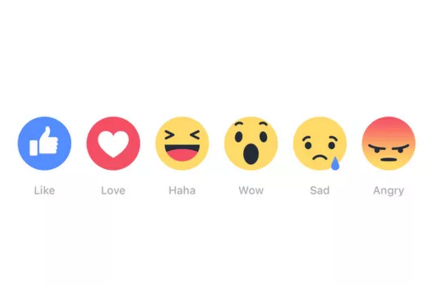
After more than a year in development, Facebook’s expanded Like button “reactions” are now coming to a News Feed near you. For the first time, you’ll be able to react to friends’ posts with something other than a gesture of pure positivity. Long press on the Like button and you’ll now see “love,” “haha,” “wow,” “sad,” and “angry,” and posts will now show the mix of reactions they’ve received. And while there’s no “dislike” button, as some users have long requested, Facebook says that the new mix of reactions has proven popular with users during testing in Spain and Ireland. It’s launching today on iOS, Android, and the web.
The road to an expanded range of reactions began last year, when Facebook CEO Mark Zuckerberg told members of the News Feed team that the time had come to move beyond the simple Like. “Everyone’s had one of these posts in News Feed where they’re like, I want to respond in some way, but ‘like’ doesn’t feel appropriate at all,” says Tom Alison, director of engineering for the News Feed. To determine an initial set of new reactions, Facebook looked at the one-word comments people left the most on their friends’ posts, as well as analyzing the sentiments in the most popular stickers posted as comments.
By Casey Newton, TheVerge, SouthFloridaReporter.com, Feb. 24, 2016












